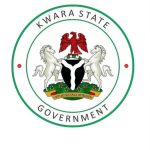The Federal Ministry of Budget and National Planning has revealed that budget and economic planning commissioners from across the country are calling for the creation of a unified framework to guide the effective implementation of local government autonomy in Nigeria.
In a statement issued on Tuesday, the ministry said the commissioners, under the Community of Practice made up of representatives from all 36 states, acknowledged the Supreme Court’s 2024 judgment granting financial and political autonomy to local governments. However, they emphasized that autonomy must be structured with a clear, workable framework.
“Autonomy is not absolute. There is a need for a framework that will work for all local government areas to enhance their effectiveness,” read part of the communiqué released after the 18th CoP meeting, held in Umuahia, Abia State, from May 6 to 8.
While the Supreme Court had ruled that local government allocations must be paid directly into their accounts, implementation has stalled due to complications. The Central Bank of Nigeria has demanded two years of audited financial reports from each council before accounts can be opened, a condition which the Association of Local Governments of Nigeria says was not included in the court judgment.
Tensions have also been rising at the state level, with several governors allegedly threatening their local government chairmen not to open the required accounts with the CBN. Some governors reportedly resorted to pressure and intimidation to prevent the direct payment of allocations to local councils.
The Secretary General of ALGON, Muhammed Abubakar, criticized the Attorney General of the Federation for allegedly frustrating the autonomy process. He argued that the AGF’s directive for the CBN to open uniform accounts for all councils contradicts the spirit of the Supreme Court ruling.
“Local governments are constitutionally recognized as an independent tier of government. Actions from the AGF’s office seem to undermine that independence,” Abubakar stated in Abuja.
Local government chairmen have also confirmed that state governors are obstructing the implementation. One chairman from the South-East said his governor even rejected an arrangement to accept 50 percent of the allocation to facilitate account opening, threatening them not to proceed with CBN registration.
Despite the ongoing challenges, the commissioners commended the Tinubu administration’s economic reforms, noting improvements in revenue generation and reductions in state debt burdens.
They encouraged subnational governments to use the expanded fiscal space to invest in grassroots infrastructure and services to boost economic productivity.
They also recommended the establishment of State Joint Economic Planning Boards, in line with the Supreme Court’s directive, to coordinate economic development across local councils. States with existing legislation were urged to share their frameworks and work toward a model law for broader adoption.
The commissioners expressed support for the federal government’s proposed ward governance system, viewing it as a vital tool for planning and service delivery at the grassroots.
They also encouraged closer collaboration with the National Bureau of Statistics to support data-driven decision-making.
Finally, the commissioners appealed to the Federal Ministry of Budget and Economic Planning to continue capacity-building efforts for state officials in budgeting and planning to improve development outcomes.
The meeting, hosted by the Abia State Government in partnership with the federal ministry, drew 104 participants, including representatives from federal and state agencies and development partners.














